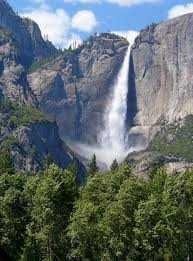البقرة ٢:٢٥٥
ٱللَّهُ لَآ إِلَٰهَ إِلَّا هُوَ ٱلْحَىُّ ٱلْقَيُّومُۚ لَا تَأْخُذُهُۥ سِنَةٌ وَلَا نَوْمٌۚ لَّهُۥ مَا فِى ٱلسَّمَٰوَٰتِ وَمَا فِى ٱلْأَرْضِۗ مَن ذَا ٱلَّذِى يَشْفَعُ عِندَهُۥٓ إِلَّا بِإِذْنِهِۦۚ يَعْلَمُ مَا بَيْنَ أَيْدِيهِمْ وَمَا خَلْفَهُمْۖ وَلَا يُحِيطُونَ بِشَىْءٍ مِّنْ عِلْمِهِۦٓ إِلَّا بِمَا شَآءَۚ وَسِعَ كُرْسِيُّهُ ٱلسَّمَٰوَٰتِ وَٱلْأَرْضَۖ وَلَا يَـُٔودُهُۥ حِفْظُهُمَاۚ وَهُوَ ٱلْعَلِىُّ ٱلْعَظِيمُ
Allah - there is no deity except Him, the Ever-Living, the Sustainer of [all] existence. Neither drowsiness overtakes Him nor sleep. To Him belongs whatever is in the heavens and whatever is on the earth. Who is it that can intercede with Him except by His permission? He knows what is [presently] before them and what will be after them, and they encompass not a thing of His knowledge except for what He wills. His Kursi extends over the heavens and the earth, and their preservation tires Him not. And He is the Most High, the Most Great.
للحصول على تطبيق القرآنhttps://goo.gl/w6rESk
Commentary :
This famous verse of the Qura'an is a description of the majesty of Allah. According to a hadith, if a person recite this verse at the time of going to bed,Allah will send an angel to guard him throughout the night. Some people therefore recite this verse at any time in seeking Allah's protection in general.
The verse begins by emphasizing that Allah is "AL-Hayy" and "Al-Qayyum", "AL-Hayy means" the living" or the ever living. While "Al-Qayyum" means he's the one who is the source of all existence. Everything depends for its existence on him. While he's a self-subsistent_he require no sustenance from anything else.
The verse continues by making a distinction between Allah and the living things which he has created. Allah is at all times fully awake and aware of his creation. There's no time when he is overcome by sleep and therefore unconscious of events.
He's quite distinct from creation since he's the owner of it. No other person - human being or angel- has the right or the power to intercede. (this doesn't mean that. He does not allow intercession, but that it is not automatically allowed to anyone) The implications of this is that our prayer should always be addressed directly to Allah. We should not do as much s done in some other religions, which is to adress prayer to prophet, or Saint or angels or dead ancestor to intercede with Allah on our behalf. Allah is the sustained of all and cannot be persuaded against his will to show favour.
The verse then points out the difference in Allah's knowledge, which is total and timeless, and man's knowledge, which is limited and time bound. Man is only able to know what Allah wills him to know, whether through revelations or through the exercise of his limited senses and limited capacity of his mind.
Allah's eternal power, symbolized by his kursiy (throne) encompaetge e tire between heaven and earth. He's never tired of upholding them. This statement makes a clear distinction between Islamic teaching about Allah and those of the book of genesis in the Bible. Genesis 2:2 states that after creating universe in 6 days, Gd "rested" on the seventh l day. Ayat al-kursiy contradicts this anthropomorphic concept of God ("anthropomorphic" means the idea of contributing human characteristic to non human beings. Thus because man feels tired after work, he assumes that God feels tired after work) this verse makes it clear that Allah is not of the same order of being as man and does not share how e needs. He's high above such needs, the Supreme power behind the universe.

